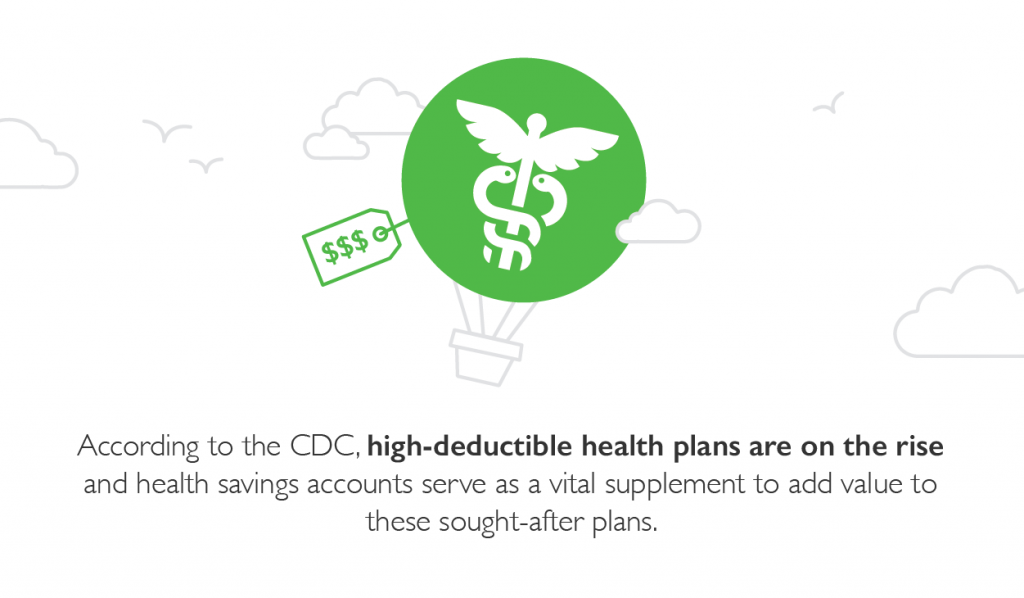Healthcare costs in the U.S. have never been higher, and that means businesses and employees need to be strategic about how they fund medical expenses. To this end, a health savings account (HSA) can be one of the most financially rewarding and useful supplements to a health insurance plan.
Let’s examine some of the advantages of an HSA for employers and employees alike:

But first, what is a health savings account?
An HSA is more or less exactly what it sounds like – a tax-free savings account reserved specifically for healthcare-related expenses. It’s the individual’s responsibility to contribute funds to the account on a regular basis. That money might come from regular earnings, or it could be contributed by an employer as part of an employer-sponsored insurance program.
To qualify for an HSA, the insured must be enrolled in a high-deductible health plan (HDHP). More specifically, that plan must have a deductible no lower than $1,350 for an individual, or $2,700 for family coverage, according to the IRS.
Unlike traditional savings accounts, the funds contributed to HSAs – either by the insured or their employer – can only be used for healthcare expenses. Any non-qualified use of HSA funds will be taxed, and will come at the cost of an additional 20% tax penalty for anyone under the age of 65.
Also note that there are annual limits on how much you can contribute to an HSA: $3,500 per year for individual coverage and $7,000 for family coverage. If those contribution limits are exceeded, you will need to pay a 6% excise tax on the excess funds.
How employees benefit
Employees usually sign up for HDHPs to save money on monthly premiums. An HSA gives them an effective, easy way to save pre-tax dollars that can be applied to their deductible should medical expenses arise. (Note that preventative checkups and screenings are usually covered under most HDHPs.) Ideally, after one year of contributions, the employee will have more than enough to cover his or her deductible out of pocket. This means they won’t have to dig into other sources of savings to cover medical expenses.
In other words, HSAs are an opportunity to save money on health insurance while securing funds that help the account holder cover the cost of a deductible – or healthcare expenses that aren’t covered by a plan such as dental and vision. Other benefits of HSAs include:
- They’re tax deductible.
- They’re tax-free, interest-bearing accounts.
- Funds roll over into the next year.
- Anyone 55 and older can contribute an extra $1,000 per year in catch-up funds, according to SHRM.
- They can act as a valuable source of funding post-retirement.
How employers benefit
First and foremost, the perks offered to employees always benefit employers indirectly by making them more competitive to talented candidates. High-deductible health plans are on the rise, according to the CDC. Health savings accounts are a nice supplement to these highly sought-after health plans.
Beyond that, HSAs are not insurer-specific, which means they can be very easily transferred between insurance carriers without any sort of penalty or complexity.
More importantly, businesses can waive payroll taxes for employee contributions that are deducted from paychecks. Meanwhile, any employer contributions to employees’ HSAs are tax deductible because they qualify as a business expense, according to SHRM.
In this sense, HSAs offer plenty of value for employers and employees alike.
How to learn more
Whether you’re a business owner who’s interested in setting up accounts on behalf of your employees, or an individual who’s curious about HSAs, the experts at Bank Midwest are happy to answer any additional questions you may have.
Contact us for more information or to begin setting up your, or your employees’ HSAs today.
